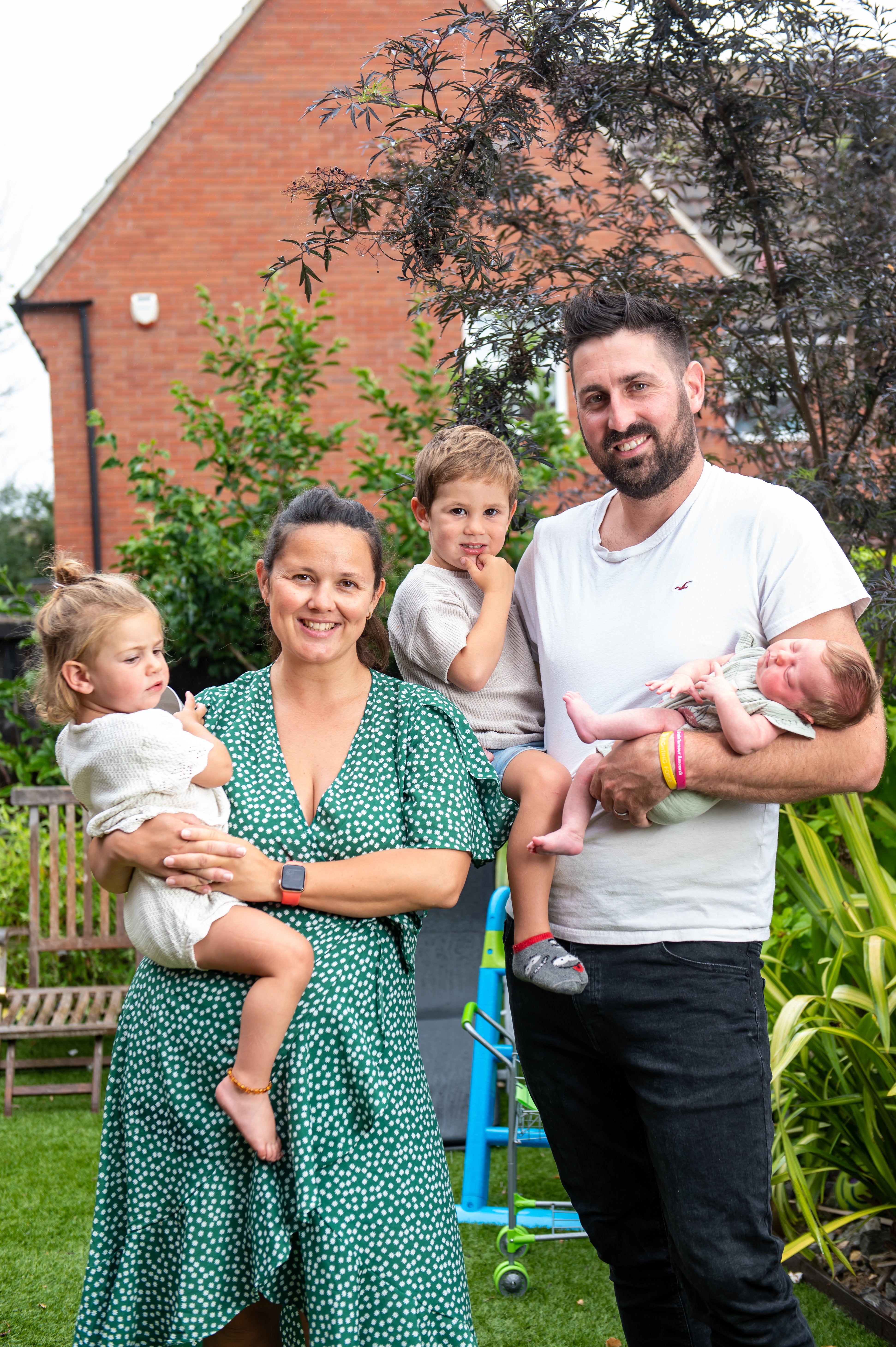
A couple have finally welcomed the third baby in a set of IVF (in-vitro fertilisation) triplets, four years after the first sibling was born.
Karen and James Marks from Taunton, Somerset had had their first child – a son named Cameron – four years ago. Their daughter Isabella followed two years later.
Now, Karen has given birth to their final triplet, a daughter named Gabriella.
The children are considered triplets because they were all conceived on the same day, at the same time, and the same batch of embryos through IVF.
After Cameron was born in September 2018, the couple chose to keep the remaining embryos frozen so they could add to their family later.
Isabella was born in September 2020, and Gabriella on 3 July.
“It feels so great to have all three of our children now, we feel so incredibly lucky,” Karen said.
“Some people go through IVF and sadly don’t even get to have one baby, and we’ve managed to have three, so we just feel so lucky.
“Gabi was our last embryo, so she’s our last baby now. I knew I wasn’t done before Gabi, so I told my husband if it didn’t work, then we better get saving so we could have another one! I feel complete now, I’m so happy. My heart is very full.”
Around 390,000 babies have been born via IVF in the UK since records began in 1991, according to the Human Fertilisation and Embryology Authority.

Karen said the couple turned to IVF after they tried to conceive naturally for a year but were unsuccessful.
“There’s no specific reason. I don’t ovulate regularly so that’s the main thing, but other than that, there’s no reason - we don’t have any conditions,” she explained.
The couple have shared their story to encourage others to try IVF if they are struggling to fall pregnant.
“Infertility never leaves you,” Karen said. “Pregnancy announcements can still be painful, especially when someone has seemingly conceived easily.
“It’s a battle and a journey, and while part of me believes there’s a reason we had to go through it, we’ve met so many wonderful people along the way.
“If you’ve exhausted all other options, then crack on and go for it. Don’t put it off or avoid it. It’s the most likely fertility treatment to work, and it did for us.”







